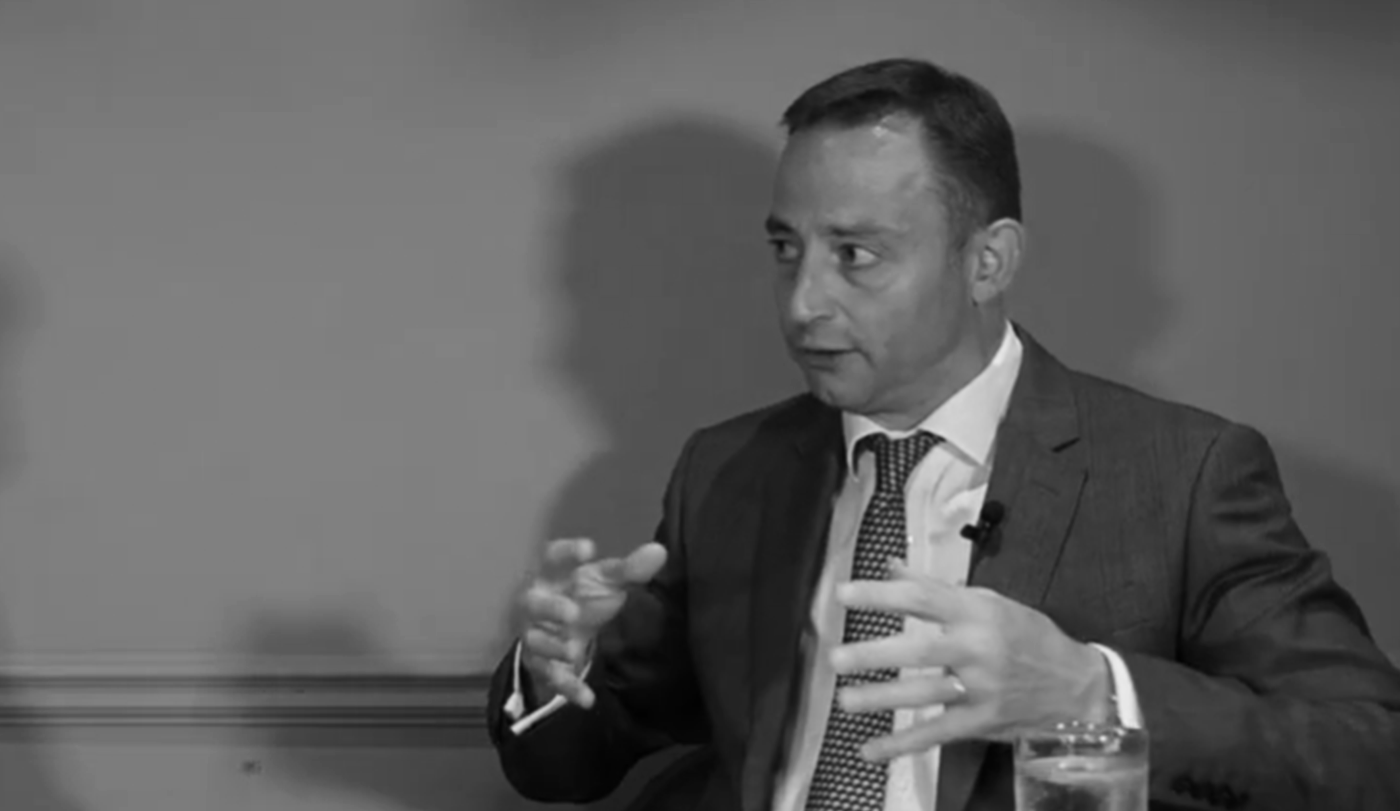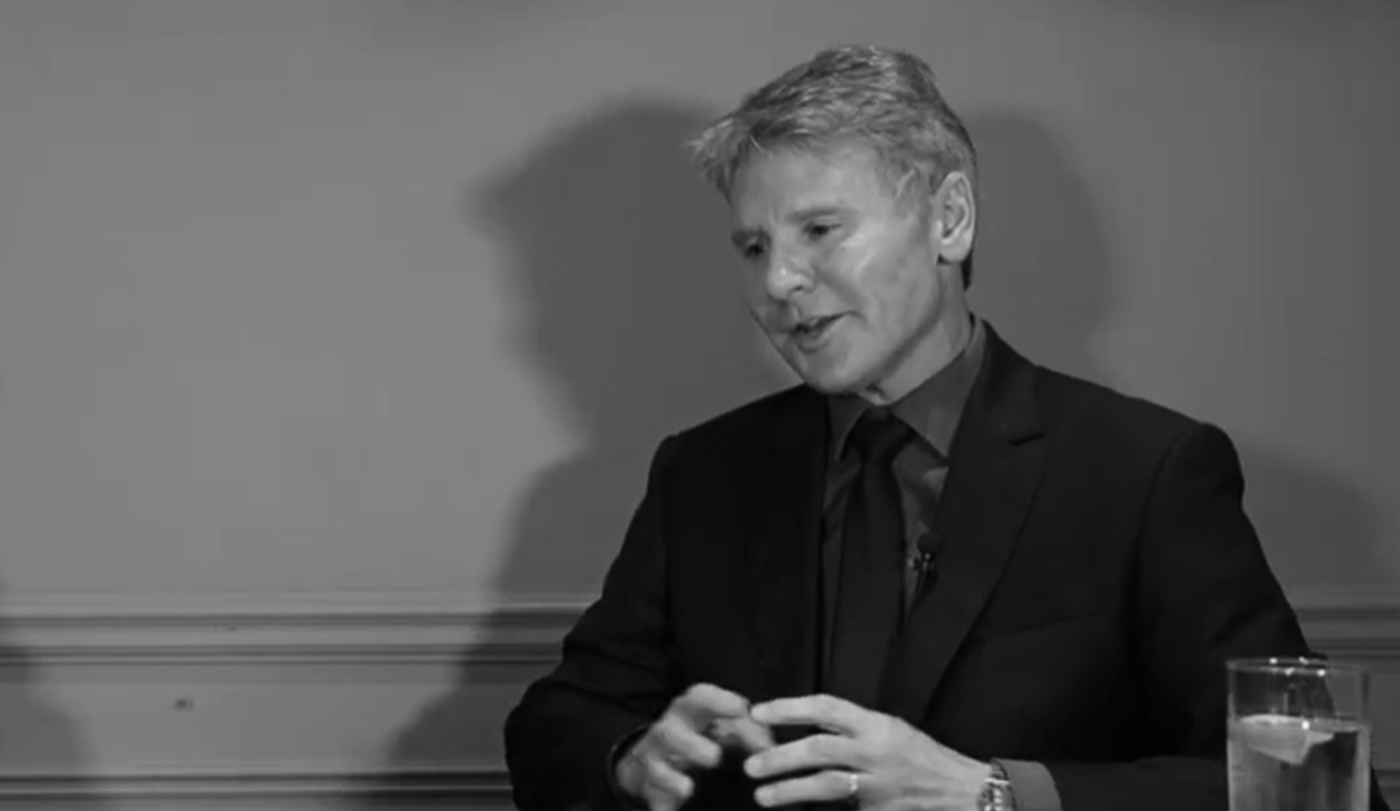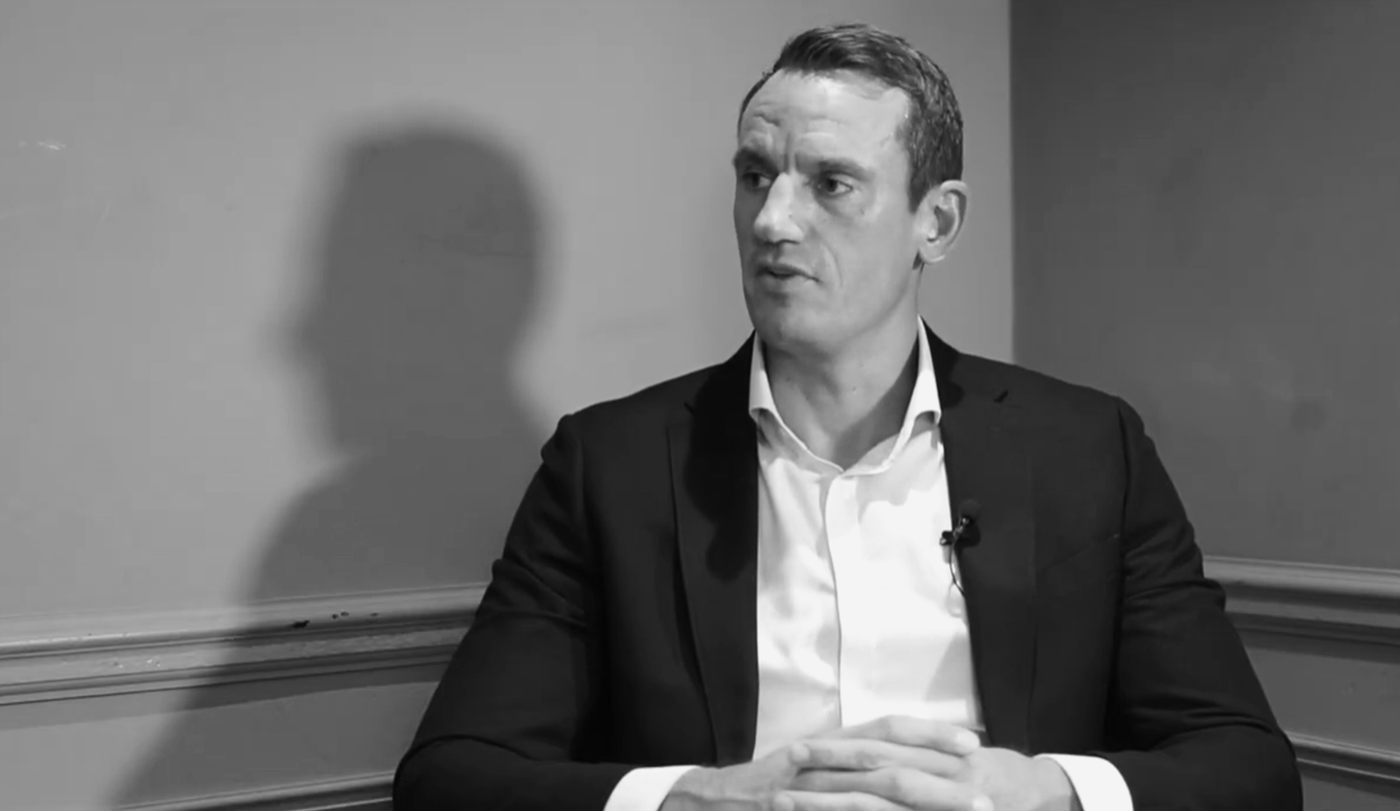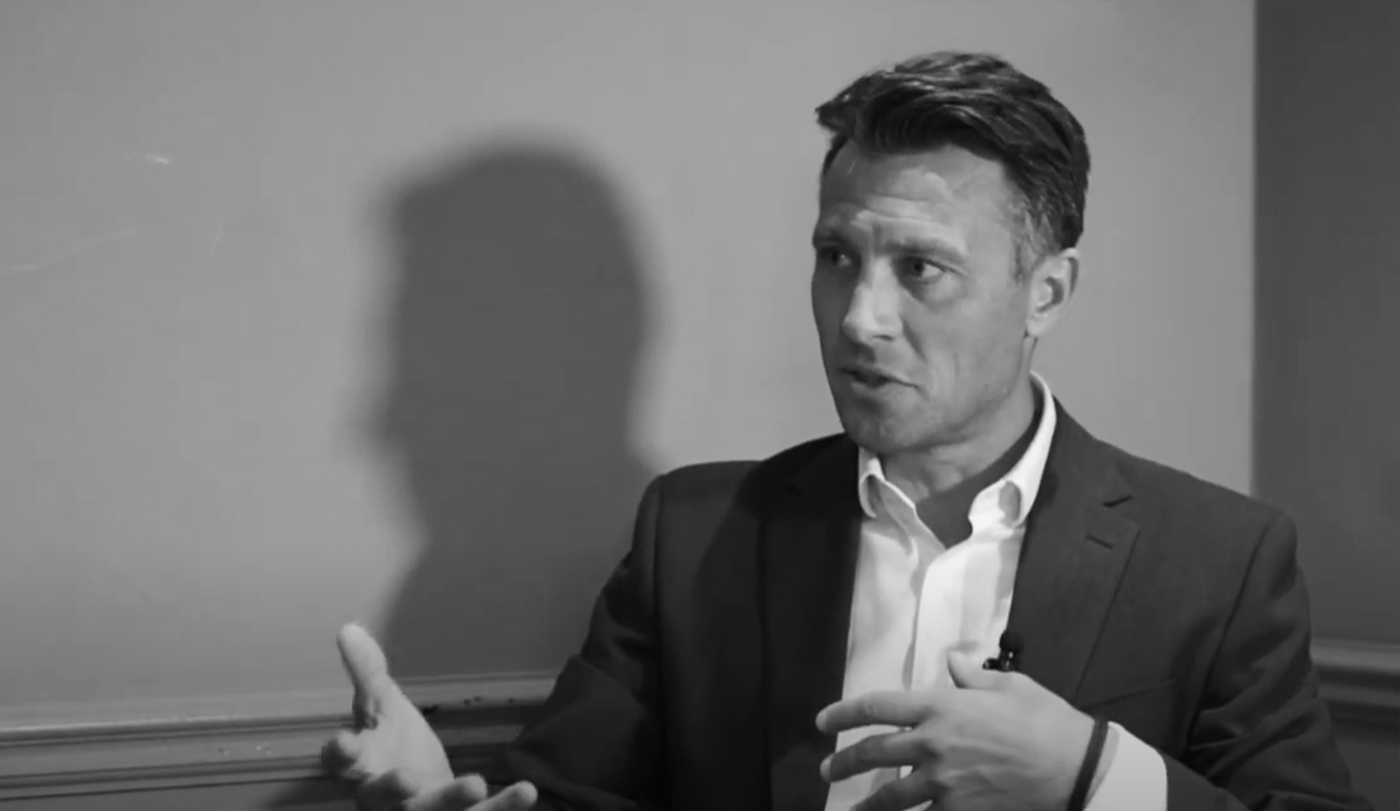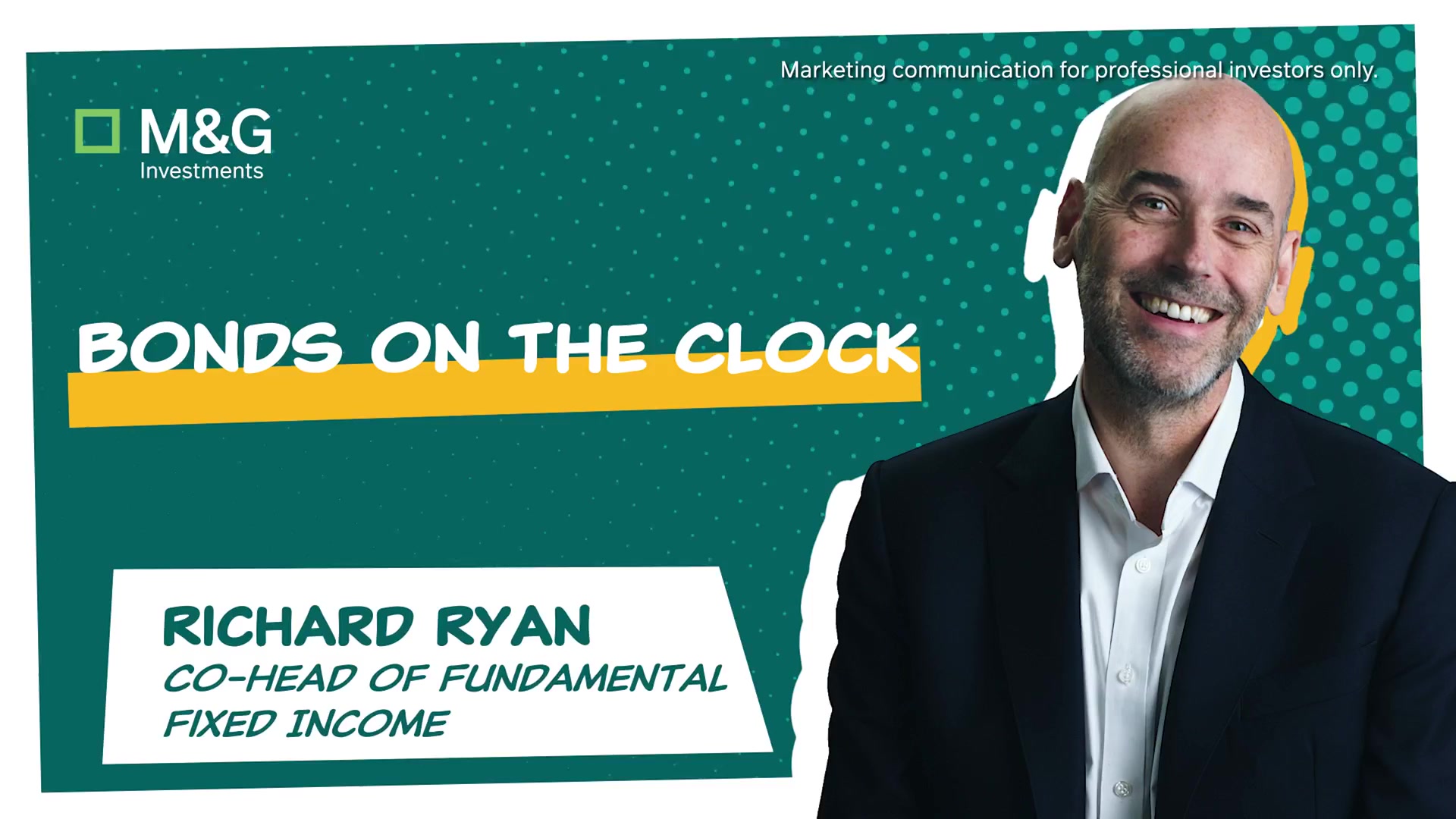On politics as two-edged sword, greater clarity in responsible investing and being in Berlin the day after the Wall fell
In our regular video series, we interview the wealth sector’s key decision-makers to discover how they think about life, both within the world of investment and beyond it; what brought them into the business and what keeps them here; and what makes them and their companies tick
For Uwe Ketelsen, head of portfolio management at 7IM, the most exciting aspect of the current investment outlook is arguably also the biggest cause for concern.
Talking with Wealthwise editorial director Julian Marr in the above video – filmed, it should be said, a month or so before Donald Trump’s recent tariffs announcements – he says: “The great news is – or at least I think it is – that we finally do not have to manage around seven US stocks, plus or minus, any more.
“So the playing field is more open – there is more room for selection, there is more room for asset allocation and actually to have success with it. It has been a really tough two years to work around and manage around these seven or so names.
Our mantra has always been ‘Ignore politics and think long term’ but we have now reached a new era where politics and the changes in politics actually have economic implications.”
“The bad news, however, is that our mantra has always been ‘Ignore politics and think long term’ but we have now reached a new era, as people refer to it, where politics and the changes in politics actually have economic implications – and that is quite hard to gauge.
“So we are talking about Trump – but it is not only Trump. It is a global phenomenon where the political measures will impact inflation rates, currencies, monetary policy and fiscal policy and the implications of that are not quite clear to me yet. We cannot ignore it anymore, though – and it is both an opportunity and a concern.”
Two clearer camps
Elsewhere in a conversation that also takes in hunting down value for money investments, the crucial importance of liquidity, and walking through a deserted East Berlin the day after the Wall fell, Ketelsen discusses the evolution of responsible investing.
“At Seven, we have always clearly separated what we are doing in our responsibly managed offerings,” he says. “Outside those, what we are focusing on is fund managers doing what they should be doing – other than managing money – which is a good level of voting and engagement. We do expect that fund houses are active there but we don’t expect a responsible investment strategy in that regard.”
In responsible investing, meanwhile, Ketelsen suggests we are now effectively seeing the landscape change “in real time”. “Two years ago, if you wanted to hire an ESG analyst, they would come at a premium in the job market,” he continues.
“As a result of Trump – and others – everything has now normalised a little bit and, one after the other, we are seeing big US houses basically dropping net zero and all the rest of it. What that means is you now have a way clearer choice of fund houses that are clearly in the game and want to offer something on the responsible and really have expertise there – and others who do not.”
Another change Ketelsen identifies is a reduction – or, at any rate, a deacceleration – in the number of ESG-oriented indices and ETFs tracking those indices. “The proliferation there is something that has really annoyed me over the years,” he says. “It has been at an absurd level of inflation but, again, I think that will now normalise a little bit and investors will have a clearer and simpler choice as to what they want to access.
“And this means there will be a more distinct offering from Seven and other asset allocators, where we can say, This is the stuff where we manage, not just for return, but we also want to do something good – whether that is in environmental terms, human capital terms or social capital terms. So, in a nutshell, what we are seeing now is the industry splitting into two clearer camps – where nobody will pretend any longer to be one thing and do something else. It will now be very clear who is on what side of the equation.”
A full transcript of this episode can be found after this box while you can view the whole video by clicking on the picture above. To jump to a specific question, just click on the relevant timecode:
00.00: Introduction
00.34: What excites you about the current investment outlook? What worries you?
02.03: What do you most look for in an individual investment? What constitute ‘red flags’?
03.56: How do you guard against ‘style drift’ among the funds you hold in a portfolio?
07.10: To what degree should professional investors be thinking beyond so-called ‘traditional’ investments? Towards what?
09.10: What does ESG 2.0 look like? How are you now approaching ‘investing for good’?
12.37: What was your path into investment – and, if you hadn’t taken it, what do you think you would be doing now?
15.09: What is the biggest investment mistake you are prepared to admit to – and what did you learn from it?
16.25: If you were head of the FCA for a day, what is the first thing you would tackle?
19.42: Are we are a more diverse and inclusive industry today than, say, 10 years ago? What more can we be doing?
21.52: Outside of work, what is the strangest thing you have ever seen or done?
23.12: Two ‘Choice Words’ recommendations, please – one a book; one a free choice?
Transcript of ‘Choice Words’ Episode 7:
Uwe Ketelsen, with Julian Marr
JM: Well, hello and welcome to another in our series of ‘Choice Words’ videos where we get to meet key decision-makers from the world of fund selection and fund research and find out what makes them tick. I am Julian Marr, editorial director of Wealthwise Media, and today I am delighted to be talking to 7IM’s head of portfolio management Uwe Ketelsen. Hello, Uwe.
UK: Hello. Thanks for having me.
JM: Oh, it is a pleasure – absolutely. Thank you for joining us. Jumping straight in – as I have learned to do, having watched the intros of my previous recordings – what excites you most about the current investment outlook? And what worries you or gives you pause for thought?
UK: Well, the source of excitement is probably the same as the source of my worries, I guess. The great news is – or I think the great news is – that we finally don’t have to manage any more around seven US stocks, plus or minus. So the playing field is more open – there is more room for selection, there is more room for asset allocation and actually to have success with it. It has been a really tough two years to work around and manage around these seven or so names.
I think that is the good news. The bad news is that our mantra has always been, Ignore politics and think long term. But I think we have now reached a new era, as people refer to it, where actually politics and the changes in politics have economic implications – and that is quite hard to gauge. So we are talking about Trump – but it is not only Trump. It is a global phenomenon where the political measures will impact inflation rates, currencies, monetary policy and fiscal policy and the implications of that are not quite clear to me yet. But we can’t ignore it anymore. It is an opportunity but it is also a concern.
Portfolio discipline
JM: A very succinct summation of world affairs – excellent. A good jumping-off point and I am almost regretting – having got that wide view – homing in quite closely now. Still, when you are picking funds or individual stocks, what do you look most for in an individual investment? And what would you consider to be a serious red flag?
UK: What I am looking for is value for money – not in a regulatory sense but, really, for the off-the-shelf price or the price we negotiate, does the investment add value to my portfolio? I remember, when I came to the UK many years ago, there was talk about closet trackers and, basically, unreasonably highly-priced investments adding little value – and I think now we have way more choice out there.
We have index-plus, enhanced index, quantitatively managed or whatever – investment opportunities that are taking low risk for a low cost – and that is a nice addition in a certain portfolio context. So there is a way more open playing field to look at stuff – and, as long my expected return stands in good proportion to the cost for the investor, I am quite happy.
What is a red flag? A change in liquidity profile is probably at the top of my list. A change, or continued change, in team structure or turnover is a second one. And then the often-quoted ‘style drift’ – if it is unexplained and unannounced. That is another one – where you see the portfolio morphing and you can’t reconcile it anymore with what the strategy is officially meant to do.
JM: Well, you mention ‘style drift’ and it is a constant risk for someone in your position because funds are you building blocks and you do not want building block to change shape, as it were – otherwise, the whole structure comes tumbling down. Trouble is – to pick one – value has been out of favour for large chunks of the last 10 or 12 years and you wouldn’t be human as a value fund manager, if you did not at least think, Hang on, there is a wonderful stuff happening over there. And you morph. Bearing that in mind, how do you cope as a fund selector with points in time when it might be uncomfortable – possibly for yourself, more likely for the people you are buying – to maintain their own investment discipline? What do you do to keep control of that?
UK: Well, portfolio discipline is important for us – and we are both fund selectors and asset allocators. So we want to make the value-versus-growth decision, and we want the fund managers we employ to be true to their label. I know this sounds a trivial thing to say but I do feel sorry for value manager over many years. I mean, we know value, as a style over the very long term, is actually a very good place to be in – but there are extended periods of time where it doesn’t work that way. And that is commercially tough, maybe, for those houses – but I think it is important they still stay true to their style.
That is different from saying that the strategy or investment process cannot evolve. That we definitely expect and when there is a manager who says, OK, we have done it this way but now we’re doing it that way – and they explain to us why they are doing that – we may say, Well, that is a proper learning from the past and a refinement of the process. That is OK – that’s actually a good thing. So I think there are shades of grey on how we can actually look at this whole subject of style drift.
JM: So, with one of your holdings, if you see a fund moving away from why think you bought it, you have a conversation with the manager and say, Look, what’s going on here? How does that work?
UK: Yes. My whole job and the job of my team of analysts is obviously to stay on top of what we are invested in – and you now have this great toolkit available to notice these things very early. You can look at it as often as you want – and every single stock or security as well. So when you see stuff that doesn’t feel like what you expected, the first thing is to have a conversation – and there might well be a good explanation.
But if it is basically not a good explanation – something we can’t reconcile – then usually the expectation would be it is a temporary reordering that may still be within the prospectus, let’s say, but nothing where the manager says, This is a new era and we are just doing it that way. So the conversation is important to have first – is this accidental? Is there maybe a new analyst in the team with new ideas? Or is it something where, actually, the manager is secretly trying to change the game a little bit. That would be a concern.
Brilliant diversifier
JM: Now, earlier you mentioned there are a whole range of different investments you can move into – so let’s assume your answer is ‘yes’ to the first part of my next question: To what degree should professional investors be thinking beyond traditional equities and bonds? Let’s move straight on then to, What alternative asset classes are you looking at?
UK: Well, alternatives have been, certainly at 7IM, part of the portfolios for a long time now. When you look at what alternatives were like 20 years back, we have moved from offshore, unregulated, expensive, ‘two and 20’ funds or funds of funds through liquid alternatives that were a bit cheaper, but still expensive, compromised investment style, still the same thing but. you know, shoehorned into the Ucits framework.
I think where we have now arrived at, certainly at Seven, is actually to say there are interesting alternative style premia, alternative payoffs, that you can actually access very cheaply and in a very liquid format. The most obvious one being trend, which is a brilliant diversifier – even in a cautious portfolio context – and you can get it for a fraction of the off-the-shelf price through an expensive manager. So that is where we are now – but the other thing is what you communicate to your clients.
Remember, in the old days, it was ‘equity-like returns with bond-like volatility’ – and of course, long term, it didn’t quite work out that way. When you construct something, however, that is not meant to shoot out the lights but, in a liquid and cheap way, just be an alternative, say, to a low-risk, government bond portfolio or a high-quality corporate bond portfolio – that is a more reasonable benchmark for saying, This is what we will try to beat as a pair trade, not more and not less. If you position it that way, then alternatives are a brilliant, well, alternative to other holdings in your portfolio.
Real-time change
JM: Let’s move on to investing for good. My perhaps rather glib question is always, What does ESG 2.0 look like? And what I mean by that is, clearly investing in companies that do good has evolved over the last 25 or 30 years so what is the next stage? How do you how do you approach it now?
UK: Well, at Seven, we have always separated quite clearly what we are doing in our responsibly or sustainably managed offering on the model and the fund side – and outside that. So, outside that, what we are focusing on is just fund managers doing what they should be doing – other than managing money – which is a good level of voting and engagement. We do expect that from fund houses – that they are active there – but we don’t expect a responsible investment strategy. That is absolutely not the case.
Within our responsible offering, it is interesting that, effectively in real time now, we are seeing a change in the landscape. Two years ago, if you wanted to hire an ESG analyst, it would come at a premium in the job market. I think everything is now normalised a little bit – thanks to Trump and others. You see, one after the other, big US houses basically dropping their guard and saying, Uwe, you know, we are dropping net zero and all the rest of it. And you now have a way clearer choice of fund houses and fund managers that are clearly in the game and want to offer something and really have expertise – and others who do not.
So that is one industry change we are seeing. Then something that really annoyed me over the years – this proliferation of indices, and ETFs tracking those indices, has been at an absurd level of inflation. I think that will normalise a little bit and you will have a clearer and simpler choice as to what you want to access.
And this means there will be a more distinct offering from Seven and other asset allocators, where we say, This is the stuff where we manage, not just for return, but we also want to do something good – whether that is in environmental terms, human capital terms or social capital terms. But I think, in a nutshell, what we see now is the industry really going into two clearer camps – where nobody will pretend any longer to be one thing and do something else. It will now be very clear who is on what side of the equation.
JM: You mentioned environmental, human capital and social capital – because one of the issues with ESG is it is such a personal thing, are those your official distinctions now? So people can go, OK, that is the bit I am interested in?
UK: I think every investor who has an interest in this will have a slightly different interpretation and set of values – and, as a provider of a solution, I think you just have to be clear: What are you screening out? What are you avoiding? And what is part of it? And then the investor has to decide whether it meets their expectations or not. So we have been reasonably clear – we have a ‘controversial weapons’ policy that covers everything; we have a decarbonisation target that covers everything in our portfolios – and, beyond that, we have a clear set of screening criteria that we are open about with our investors or prospects.
Closer to the client
JM: Thank you. Let’s move on to some more personal questions now – although that sounds more ominous than I meant it to! What was your path into investment? And, in an alternative universe, what would you be doing if you had not taken that path?
UK: I am a trained economist and I started in economics. I moved into risk management but I realised you are not rewarded very well there – not only in monetary terms, but also nobody really cares about the risks that you are avoiding! So I felt I wanted to be actually in the return-generation and a bit closer to the client – that was my nearer-term motivation back then.
At that time, I was working at Swiss Bancorp in Switzerland, which later merged to become UBS – and, as it goes whenever you have a corporate action, you can’t really move anywhere within the organisations so I had to move outside to actually get into the role I wanted. And I’ve stayed there. Obviously the industry has evolved a lot over the years and the way I look at us now – and also thanks to regulation that, especially in the UK, has evolved in a good way – I think we are genuinely doing something good and helpful for investors.
You know, 95% or 98% of people out there don’t really know what to do with their money – and then they make the biggest mistakes with their wealth, because they just don’t know how to do it. And that is very normal – you and I, we are not doctors and we don’t know what to do when we have an ailment of some sort so we seek help. So I think we are actually doing something really good and important for clients – and, with every year I am clocking up in the industry, I feel very confident and comfortable we are actually adding value to people.
JM: OK – and, in the alternative universe, you would still be doing risk management or something completely different?
UK: I would go straight into investment management – and not risk management anymore.
JM: I guess the trouble with risk management and avoiding risk is the clients only care about what you do if the risk isn’t avoided – and then you really hear about it!
UK: Exactly. And in every well-organised investment business, you will have an independent risk function. We have it at Seven as well – and it is a very good and collaborative process. And when you are constantly kept on your toes, you don’t take those undue risks in the first place. So I think we are beyond that stage where you have nasty investment managers doing weird things. That is kept in check.
Importance of liquidity
JM: A completely independent question from what we just talked about then – what is the biggest investment mistake you are prepared to admit to and did you learn any lessons from it?
UK: Oh, I think there are probably a lot of little mistakes over the years. If I had to pick one thing, it was still not a big error, but something I wouldn’t want to do again and that I have learned from is, if there is anything more important to investors than returns, it is be able to get their money back – so the importance of liquidity. And there was a time – a long time ago – when you would buy open-ended property funds.
And that is one of the lessons I have learned – you know, don’t try to shoehorn an asset class into a fund wrapper or a vehicle that is just not corresponding to the underlying asset class. This is how we are managing money now – we stay out of real assets that are unlisted in nature and illiquid in nature. It was certainly painful to sit on well-managed, open ended property funds for years that couldn’t return investors’ money.
Set the guardrails
JM: Sure. This has come up a few times in our conversation now – that liquidity to you is absolutely at a premium. OK, this question is completely unconnected to property funds or anything else we have been talking about, if you were head of the FCA for a day, what would be your priority? What is the first thing you would tackle?
UK: So first of all, as I said a moment ago, I actually think the degree of consumer protection people enjoy here and that the FCA has achieved is really high. And I know a little bit about the regulatory environment in my home country, Germany, and in Switzerland, where I worked a long time and I think the level of protection of the consumer here is really good. That is all credit to the FCA – and, if I was the head of the FCA, I would be quite proud of that.
Of the two areas that come to my mind that I would focus on – one is closed-ended. There is a lot of talk about fees – always, on a regular basis, that pops up – but, to me, another concern is what is actually accessible to the retail investor in a closed-ended shape. Sometimes it can be very sophisticated investments – you know, private equity or hedge fund-style strategies – and it worries me that this is not better regulated. The other thing I have to mention is SDR and the way this has been handled by the regulator, which is an absolute mess, to be honest.
I think the regulator maybe should– and I, if I were the head, would make sure we did – take a step back and think, Are we really overstepping our mark a little bit? Should we instead scale back how prescriptive we are being to the industry and just set guardrails? So just make sure the industry is telling the consumer what the consumer needs to know to make an informed decision – and don’t try to define strategies and label strategies in the way it was done with SDR, which I think was one of the worst regulatory achievements of recent years.
JM: This is interesting – and a really weird experience for me – as I find myself actually on camera and about to defend the FCA! Although I suppose it is not really defending them to say I thought the UK approach to regulating sustainable investing was substantially better than the European approach, and clearly better than the US one – maybe that is just damning them with faint phrase.
UK: Well, I’m just saying they were overstepping the mark – I am not saying the intention was wrong to, for example, avoid greenwashing. I still come across a lot of non-UK-domiciled investments that carry the name ‘sustainable’ and you wonder, What is sustainable about you people? So I do actually take the point, which is why I’m saying it needs to be clear in the product documentation what the product is doing and not doing.
But basically to make it incredibly hard for a well-managed strategy with very clear objectives to just achieve a particular label is ridiculous. And, frankly, I don’t understand the difference between ‘sustainable’ and ‘responsible’ and why everybody is not focusing on ‘responsible’. It also means a lot of choice is taken away from investors now and a lot of cost is piled on investors – so it was simply taken a step too far, in my view.
Raw skill-set
JM: No – that is very fair. And thank you for introducing me to a genuinely new experience – and caught on camera too! I am looking at my next question on diversity – and I accept you and I are not exactly presenting a great picture of diversity! – but would you say we are a more diverse and inclusive industry today than, say, 10 years ago? What more can we be doing?
UK: Relatively speaking, yes, but we could still do a little bit better. In my previous role, when I was with Coutts and NatWest Group, we had a really good graduate programme. And what I liked about that programme is you could actually get graduates – people who come with education but no job experience, not influenced already by our industry – knowing just who they are and what they can do and getting an opportunity to work at an organisation. Then, with every year, they have in their job life, they are being pushed in a particular direction.
Now, I know when I put a job ad out and I’m looking for a fund researcher, at least 80% or 90% of the applicants will be male – and that is a result of the industry operating the way it does. So every organisation should really look at that and have a programme where, very early on, they give people with a raw skill-set an opportunity to enter our professional – it would be way better. Now that’s just on the gender side. I think in most other areas, we are doing better – although one area I think we are really bad is age discrimination, frankly. I mean, this is not articulated anywhere. It is probably a big theme but nobody is talking about it.
Wall and silence
JM: Well, I am going to be talking about it more and more because I’m getting to that sort of age! So just planning for the future there. Just on the gender side of it, I am very aware that here we are now, at the eighth Choice Words recording – and still not one lady interviewee. I am not sure that is my fault entirely – though I will try even harder! Still, if you are a lady fund selector or fund researcher, please do give us a shout! Again, there is no segue here – this is just the first of my two signature questions: outside of work, what is the strangest thing you have ever seen or done?
UK: Certainly the most memorable thing I have done was actually climbing the Berlin Wall the day after it was opened. And the strangest thing I did was, on that same day, doing exactly the opposite of what everybody else was doing and walking into eastern Berlin, which was deserted. It was like, you know, some biological weapon had been dropped on it. It was completely empty and it was a very strange feeling I have never had anywhere.
JM: Did you travel to Berlin on that day to be there – or were you already there?
UK: I was at the beginning of my university studies and we were watching TV and it was like, This is history happening – like the first man on the moon. Then we watched it the second evening and we thought, this is really history happening – we can’t stay here! So we jumped in the car, drove through the night and we probably arrived about 2am in Berlin and then we knocked off our piece of the wall.
JM: I was going to say – you have got your brick?
UW: Yes, I do have a piece!
Principles and plans
JM: That is a good answer – thank you for that. One last question – we call this ‘Choice Words’ but here I am after your own choices, some cultural recommendations. One would be a book – though it does not have to be investment. One is a free recommendation on anything else.
UK: Well, at the moment, I am working through the Anthony Selden [British prime minister] books. I started with Truss at 10, which was just extraordinary.
JM: You started there because it was the shortest?
UK: Well, yes, by design it has to be short! And I am now working my way through Johnson at 10, which is really long! And just reading through those two, what you realise – other than the political aspect of it – is how important it is to have some principles, some morals in what you are doing and a plan, frankly. That is a lesson you can take for yourself and the author is actually very good at distilling out these key life-lessons – how you want to manage a team or manage an organisation. So I am still at it.
JM: Well, they are important books – they really offer some context. Would you offer any others – or are those your two recommendations?
UK: Well, at the moment, those would be my recommendations. I have to admit I am otherwise reading research papers and there is probably nothing I would want to share there!
JM: No – not at all. Those are great choices. Thank you so much for those – and thank you so much for talking to us today. It has been so interesting. And thank you all very much for watching.
Please do look out for further Choice Words episodes as they are published


